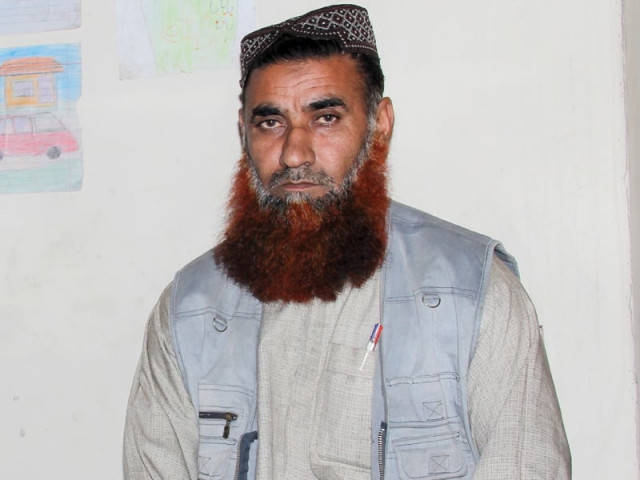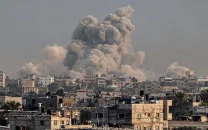Migration in focus: The Afghan teacher defeated by the system
Gul Mohammad wants a removal of the educational barriers faced by Afghan refugees.

In 1984, Kunduz, Gul’s village in northern Afghanistan, was attacked by Soviet forces, forcing him to flee on foot with his mother and siblings. An eighth-grader at the time, he wanted to carry on with his studies and become a teacher. Such aspirations were destroyed in a single night, when amidst the violent chaos of the Russian invasion, Gul lost his father.
Migration was the only option; the country across the border had become a safe haven. “After travelling on foot for two months through the mountains of Afghanistan, we crossed into Pakistan,” Gul recalls. “We came in through the Chaman border and settled in a camp near the border in Balochistan for ten years,” he says.
In 1994 the camp shut down, but knowing that there was nothing left for them in Kunduz to go back to after the bombing, he decided to move to Lahore to improve his job prospects. “When I came here first, there were not many Afghans living in this area, so we rented an empty plot and made a structure on it,” he says, referring to his 250 square yard plot where three other families now live as well.
However, Gul was not satisfied doing menial jobs like construction work and garbage collection. He wanted to do something for his community. “I wanted to teach and six years ago I got my chance to do something for the children here,” he says with excitement.
Other asylum seekers like him had started to settle in the area. A large population of children used to roam around with little to do all day. In 2004 an NGO-funded school project began and Gul was one of the teachers hired as a language instructor.
“I teach our local language, Dari, to around 100 students, five days a week and another Pashtun teacher is responsible for other subjects.” Gul fears that his native language might die out – for him it’s essential that the children learn their mother tongue.
Despite this success, Gul says the students do not have the opportunity to receive quality education since they are not allowed to take government exams for matriculation, since these require a Pakistani ID.
The school where Gul teaches is a one-hall building with floor mats placed on one side and two blackboards. “One of the boards was found thrown in the trash,” he says, complaining that the NGO is unable to give them proper supplies. Gul is grateful, though, that they provided a school building and hired him, even though he is paid just Rs5,000 a month.
Gul says he taught his own daughter at his school and she wanted to study for a degree – something he encouraged, but could not facilitate due to their status as migrants. Gul has four more daughters and two sons, all of whom study in the same school but have no real future either.
“Education can change our future. We cannot always live like this,” he says, pointing to the garbage dumped all around this colony of around 1,000 Afghan households.
But inside the school he shows drawings of students pasted on the wall. “Look at the beautiful house one of my students, Zia, made. When I asked him why he drew it, he said because he wants to live in one,” he says, smiling.
Gul shows his identity card: it expires in 2012. “We will be forced to leave the country by next year, and we have no money and no resources to live in our country,” he says, worrying that if he is sent back to Afghanistan, his efforts at teaching his community will be lost.
According to United Nations Refugee program, some 1.7 million Afghans live in Pakistan. But little has been done by humanitarian agencies for their development. “We want to go home,” says Gul. “But there is nothing left there. Who is going to build it back? We cannot because we don’t have the money,” he concludes.
Published in The Express Tribune, December 19th, 2011.
Correction: Due to a typographical error, the name 'Kunduz' was misspelled as 'Junduz' in the second paragraph. The error has been rectified.


















COMMENTS
Comments are moderated and generally will be posted if they are on-topic and not abusive.
For more information, please see our Comments FAQ